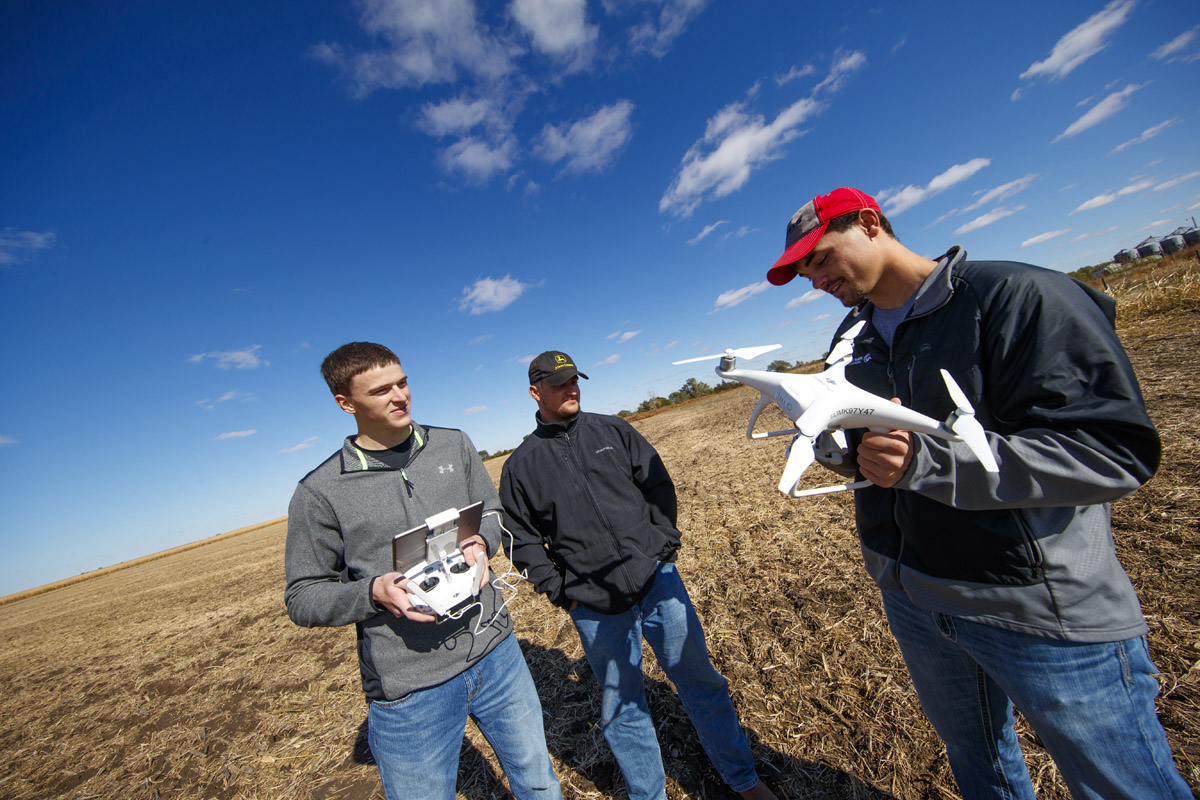NCTA tuition to be same for all students

January 27, 2017
By NCTA News Service
Curtis, Neb. – Starting this fall, tuition rates at the Nebraska College of Technical Agriculture will be alike for resident and non-resident students.
The University of Nebraska Board of Regents approved the single rate tuition plan a Jan. 27th meeting in Lincoln.
“This new tuition will assist NCTA in accomplishing its mission of providing high quality, affordable technical education for all students, our Nebraska residents as well as non-residents seeking a two-year degree in agriculture,” said Ron Rosati, NCTA dean.
NCTA had proposed the $121 per credit hour rate to assist in recruiting students to the Curtis campus for all of its technical agriculture and veterinary technology courses, particularly for newer academic degrees and certificates in specialized workforce development. Currently, nearly 12 percent of NCTA’s enrollment is non-Nebraskans.
“The college has a longstanding national reputation for providing excellent academic success in agriculture and veterinary technology,” Rosati noted. “We strive to be agile in our response to industry and employer workforce needs in Nebraska.”
More students graduating from NCTA will translate into a bigger workforce available for Nebraska’s farm, ranches and rural communities, Rosati added.
“Our mission is to prepare students for good careers in agriculture and to supply Nebraska’s farms, ranches and agricultural industries with a skilled workforce.”
NCTA has targeted many agricultural professions through its curriculum and more recently has added degrees or certificate programs to address workforce demand in areas such as agricultural education, irrigation technology, welding, and next fall, dairy production.
“We see strong demand from employers across the board looking to hire NCTA Aggies. We work very closely with Nebraska’s agricultural industries to ensure our curriculum includes components necessary for student success. Our faculty then develop those skills in our students through hands-on, experiential learning,” Rosati said.
NCTA collaborates with other colleges and universities to provide the opportunities needed for student success.
For example, academic agreements with the University of Nebraska-Lincoln guarantee transfer of selected courses from NCTA to UNL. Students wishing to become high school agriculture teachers may utilize this program to start their degree at NCTA and then finish the required bachelor’s degree at UNL.
Students wishing to enter the dairy industry can utilize a partnership agreement between NCTA and South Dakota State University. Dairy production students spend three semesters in hands-on agriculture courses at NCTA and one semester of intensive dairy production with the SDSU dairy herd at Brookings.
“NCTA is an outstanding institution not just because of its nationally ranked academic programs but because it is also a cost-effective college option for Nebraska residents,” Rosati said.
“An analysis of three years of financial aid records shows that more than 90 percent of Nebraska residents attending NCTA received financial aid. The average grant and scholarship component of the financial aid award exceeded the cost of tuition and fees by $700 per year,” Rosati added.
NCTA is accredited by the Higher Learning Commission. The Veterinary Technology program is also accredited by the American Veterinary Medical Association.
National rankings include: NCTA is a Top 2% College cited by WalletHub, in the Top 15% by the Aspen Institute, and among Top 50 Colleges offering Applied Associate of Science degrees by Community College Week.
The tuition rate of $121 per credit hour is subject to change by Board of Regents action. Additional information on NCTA’s programs is available at ncta.unl.edu or 1-800-3CURTIS.
degrees or certificate programs to address workforce demand in areas such as agricultural education, irrigation technology, welding, and next fall, dairy production.
“We see strong competition across the board to hire NCTA Aggies. Students are well prepared through experiential learning in unique courses and academic enrichment opportunities developed here at Curtis and offered with partner institutions,” Rosati said.
For example, academic agreements with the University of Nebraska-Lincoln include an A to B transfer program for students continuing from associate to bachelor’s degrees. In December, a partnership was announced with South Dakota State University for a dairy production program at NCTA and one semester working with the dairy herd at Brookings.
“NCTA is an outstanding institution not just because of its nationally ranked academic programs but because it is also a cost-effective college option for Nebraska residents,” Rosati said.
“An analysis of three years of financial aid records shows that more than 90 percent of Nebraska residents attending NCTA received financial aid. The average grant and scholarship component of the financial aid award exceeded the cost of tuition and fees by $700 per year,” Rosati added.
NCTA is accredited by the Higher Learning Commission and the Veterinary Technology program is accredited by the American Veterinary Medical Association.
National rankings include: Top 2% College by WalletHub, Top 15% by the Aspen Institute, and Top 50 of Colleges offering Applied Associate of Science degrees by Community College Week.
The tuition rate of $121 per credit hour is subject to change by Board of Regents action. Additional information on NCTA’s programs is available at ncta.unl.edu or 1-800-3CURTIS.
Download a PDF of this press release